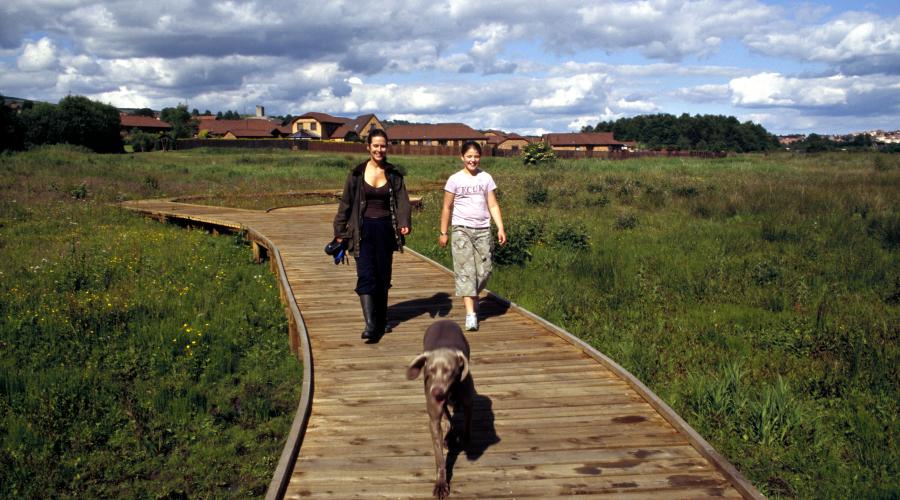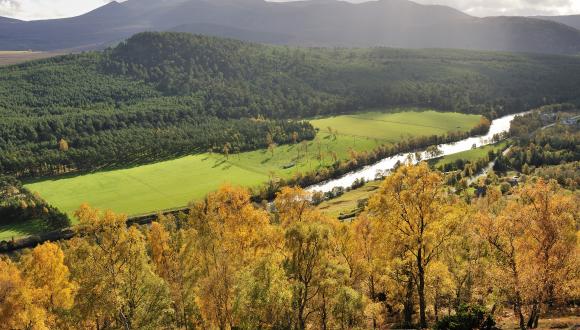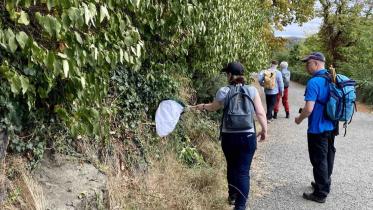
Planning authorities and landscape
Each and every planning authority across Scotland has a pivotal role in protecting and enhancing our landscapes.
Planning authorities are uniquely placed to put national and local landscape policy into practice within Scotland’s communities. In doing so, they both:
- act for the social and economic benefit of their area
- protect and enhance nature and landscapes
These are often thought of as competing priorities. But high quality environments – landscapes and townscapes – are vital to our health and to Scotland’s economy. Find out more about landscapes, health and economy.
Planning system remit and responsibilities
Under the Countryside (Scotland) Act 1967, all public bodies have a duty to further the conservation of biodiversity, natural beauty and amenity.
Planning authorities must consider how landscapes in their area should be safeguarded and enhanced through plans, policies and projects. Developers are responsible for putting these into practice.
The planning system guides decisions on the location, siting and design of new development and proactively plans for change. As such, it has a strong influence on the nature of landscape change.
Planning authorities play a vital role in sustaining high quality landscapes, which:
- contribute to national and regional identity
- add to our quality of life
- provide attractive settings that promote social and economic well-being
Actions to achieve these outcomes can take many forms.
Action for landscape
Planning authorities should recognise the importance of high quality and attractive environments when developing strategies for:
- economic development
- health and social inclusion
- environmental justice
Below are some more specific ways in which planning authorities can carry out their landscape role.
Landscape character
Landscape character is the distinct and recognisable pattern of elements that occurs consistently in a specific type of landscape.
Planning authorities should:
- carry out landscape capacity studies to inform the allocation of land in development plans
- safeguard and enhance landscapes in the planning of new development through the town and country planning system
- produce detailed supplementary planning guidance to complement landscape and design planning policies
- promote high standards of siting and design and the use of appropriate materials
- publish and promote design guides that take account of local landscape and building character, and give examples of good and bad practice
- prepare a landscape strategy for their area, to include consideration of issues beyond the planning system
- consider landscape character and quality in indicative forestry strategies
Designated areas
Planning authorities should:
- consider landscape character and identify and safeguard special landscapes in development plans
- safeguard the scenic quality and character of National Parks, National Scenic Areas, designed landscapes and wild land
- review existing local landscape designations and consider the need for new ones
Involving people
Planning authorities should:
- support community engagement on landscape issues as part of development planning and community planning, or in response to a specific proposal
- collect and share information on local landscape designations through council websites, local record centres, libraries, schools and colleges
- help people to enjoy landscapes by developing access, path networks and recreational facilities such as picnic sites, local nature reserves, country parks and regional parks
Landscape skills and capacity building
We aim to help planning authorities increase their expertise and ability to carry out their landscape duties, by:
- improving access to information on Scotland’s landscapes and on landscape tools and techniques through this website
- developing guidance on the use of Landscape Character Assessment in development plans
- publishing Landscape Capacity Studies in Scotland – a review and guide to good practice: NatureScot Commissioned Report No. 385
Get in touch to discuss your authority’s skills and capacity building needs.
Contacts
Get in touch if you have questions.







